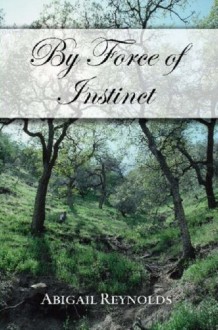
I am writing this review as a member of Rosie’s Book Review Team (authors, if you are looking for reviews, do check here) and was provided an ARC copy of this novel that I freely chose to review.
I have recently read and reviewed several books that take place in Jane Austen’s universe, from sequels to versions transplanted to modern times. One of them was The Elizabeth Papers by Jenetta James (you can read my review here), the author of this book. I was so impressed I could not resist getting an ARC copy of this book before its publication.
This is a more straightforward (and shorter) story, although it shares with the other the element of mystery, although, in this case, the story is not a domestic mystery but a police procedural of sorts (the police as we know it now did not exist at the time). Readers familiar with Pride and Prejudice will walk right into familiar territory when reading this story. We pick up the story when Bingley has moved into the area where the Bennetts live, with Darcy as his guest, and Jane Bennett is staying at the Bingley’s due to her illness, and her sister Elizabeth is looking after her. Rather than what happens in the original story, here we have a murder, and a bit later, another one (this one of a character we know, but I won’t give anything away). There are many familiar elements but interspersed with those, we have the investigation of the murders and the secrets behind it. As the description states, this is a variation on the story, as all the original elements are there, and the characters remain true to the original, but new events come into play and disrupt the action.
The story is told by Darcy in the first person and the present tense, and that makes readers feel they share his thoughts and his detecting process. This is quite different from the original novel, and it is one of the attractions of this variation, as rather than judging Darcy by his actions and having to second-guess him most of the time (let’s face it, he is the prototype of the strong and quiet man), we are privy to his thoughts and understand his motives and feelings. In this story, he becomes involved in the investigation, and that means it also fit into the genre of amateur detective fiction. In his case, though, he is not an old hand at this, eager to participate and imposing on the official team, but rather he is recruited by the magistrate investigating the case, Mr. Allwood, a fabulous character. Contrary to expectations, Darcy is not an immediate success at detecting as he is somewhat marred by his belief in appearances and his prejudices, but he is motivated to discover what happened to ensure Elizabeth is safe and goes out of his way to follow clues. The case helps him discover things about himself and about the society he lives in that make him change his outlook on life.
The case is intriguing. There are plenty of red herrings, devious characters, and, of course, there is romance. As I mentioned, Mr. Allwood is a great character. This magistrate doggedly pursues the investigation, not concerned about who might be discomfited by his methods, and making no distinctions according to social classes. People underestimate him at their peril, and I hope he might reappear again in later books (or get his own). I particularly enjoyed the mock paper by a Professor acknowledging the role of Allwood in the creation of the Metropolitan Police. A nice touch and a good way of providing more information on a star character that is not part of the original novel. Having studied Criminology, I only wish that many of the papers I had to read were written in such an engaging manner.
I am aware there are other mystery novels set up in the Pride and Prejudice universe (although I have not read them, so I can’t compare), although not at this particular juncture of the story (as this affords quite a different twist to the relationship between Darcy and Elizabeth). I enjoyed Darcy’s point of view, having access to his thoughts and getting to see a more human and less stiff version of the character (he still has his pride, of course), although as this book is very short, some of the changes of heart in the main characters feel somewhat rushed (and, personally, the process by which both of them end up changing their opinions and the way they feel about each other is one of my favourite parts in the original, but that does not detract from the writer’s skill). The scenes that take place in London and the friendship that grows between Georgiana and Elizabeth are among my favourite parts in this story.
The writing style is perfectly in sync with the original and it flows well. The mystery elements are well worked into the story, and they respect the nature of a criminal investigation of the time. In keeping with the proceedings, and with the role Darcy plays, there is a certain degree of telling and not showing, especially when it comes to tying loose ends, but that is also typical of the genre. Although the mystery elements would work in their own right, even without knowledge of the original novel, I think the ideal readers are those familiar with Austen’s work.
An interesting variation on Pride and Prejudice that offers a new perspective on their favourite characters for fans of Austen. And for fans of mystery/crime books, an intriguing insight into crime detection prior to the establishment of the Metropolitan Police in England.

 Log in with Facebook
Log in with Facebook 







